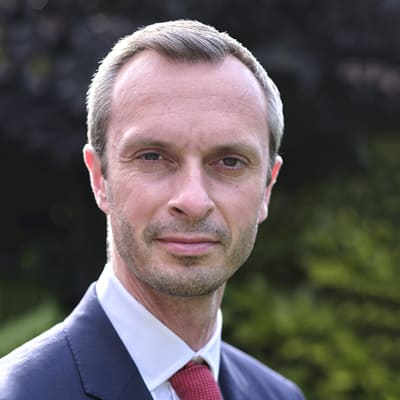Customer Logins
Obtain the data you need to make the most informed decisions by accessing our extensive portfolio of information, analytics, and expertise. Sign in to the product or service center of your choice.
Customer Logins
BLOG
Jun 17, 2024
As offshore oil production begins, what does Senegal’s new government mean for E&P investors?
Senegal's new government under President Bassirou Diomaye Faye has pledged to audit and potentially renegotiate current exploration and production (E&P) contracts to maximize revenue. However, doing so could undermine economically vital new upstream projects, suggesting the authorities may have to moderate their ambitions. The outcome of these critical decisions will determine Senegal's E&P investment outlook.
Proposed audit could undermine new projects and economic growth
President Faye has confirmed manifesto plans to audit and revise existing E&P contracts to boost state revenue and equity stakes, and to restructure hydrocarbon sector institutions. Faye's manifesto also pledged to reserve all currently unawarded offshore blocks for national oil company (NOC) Petrosen, and to introduce new taxes on oil and gas production to fund green energy and social development. The new government has yet to elaborate on these points or announce a timeline for any audit.
Faye's policy agenda risks triggering a crisis of confidence among
foreign E&P investors just as Senegal's hydrocarbon sector is
about to deliver its first revenues to government coffers. GDP
growth, forecast by S&P Global Market Intelligence at 10% per
annum in 2024-25 and about 5% in 2025-28, will be driven primarily
by the imminent start-up of the country's first crude and LNG
exports.
The radical policy proposals have negative implications for two new developments — Woodside's Sangomar, which started production in June, and BP's Greater Tortue Ahmeyim (GTA) floating LNG project. In addition, unsanctioned project phases at Sangomar, GTA and Yakaar-Teranga — representing a peak potential output of about 380,000 barrels of oil equivalent per day by 2040 according to S&P Global Vantage — may not materialize should contractual and policy uncertainty persist.
Legal and political realities could persuade the government to soften its stance
That said, stabilization clauses in existing E&P contracts create a legal guarantee for foreign investors that terms cannot be changed by the government without their agreement. Contracts also provide international oil companies (IOCs) with access to international arbitration. Senegal's authorities have so far indicated that they will not attempt to breach or legally negate those clauses.
While foreign investors such as BP, Kosmos and Woodside may be willing to engage with the government, they are highly unlikely to agree to any significant fiscal changes that materially worsen project economics. Even so, the government's ideological focus on resource maximization means that it will probably still proceed with the audit — a process that is likely to be lengthy, complicated and highly politicized. Moreover, ongoing cost recovery and local content disputes related to GTA could intertwine with the audit, putting that project at risk of contractual revisions.
Still, the ruling party's need to build domestic political alliances, secure its international reputation, and deliver economic growth could drive it to moderate its stance on any contract changes. The government may seek a compromise to ostensibly keep its promises without disrupting projects, perhaps involving scrutiny of cost recovery (with both major new projects over-budget), or increased monitoring and enforcement of the 2019 local content law. The authorities could also seek to revise the repayment terms of the partial development carries that Petrosen has agreed with Woodside and BP, or pursue a manageable negotiated increase in NOC share.
Sector restructuring may be positive, but the overall E&P outlook is challenging
Aside from contract audits, the new government's plans for oil and gas sector institutional restructuring should be broadly positive for foreign investors. A reduction of presidential powers and improved decision-making transparency are high on the agenda, and the President's manifesto plans to prioritize Petrosen in new licensing appear unlikely to make any practical difference to the awards process, given that the NOC already receives an initial equity stake of up to 30%, and requires the financial and technical expertise of foreign partners to develop offshore resources. Nevertheless, Petrosen's role in the sector — and that of the government more broadly — will probably increase under Faye's presidency.
Even as the first offshore projects start production, Senegal's E&P outlook hangs in the balance and its trajectory will be determined by how the new government decides to engage with foreign investors. Given political, economic, and contractual uncertainties, we have reviewed and revised Senegal's key scores to reflect rising above-ground risks.
This article is based on an Oil and Gas Risk strategic report. To access the report via subscription, click here. To learn about the product, click here.
This article was published by S&P Global Commodity Insights and not by S&P Global Ratings, which is a separately managed division of S&P Global.
{"items" : [
{"name":"share","enabled":true,"desc":"<strong>Share</strong>","mobdesc":"Share","options":[ {"name":"facebook","url":"https://www.facebook.com/sharer.php?u=http%3a%2f%2fstage.www.spglobal.com%2fcommodityinsights%2fen%2fci%2fresearch-analysis%2fas-offshore-oil-production-begins-what-does-senegals-new-gover.html","enabled":true},{"name":"twitter","url":"https://twitter.com/intent/tweet?url=http%3a%2f%2fstage.www.spglobal.com%2fcommodityinsights%2fen%2fci%2fresearch-analysis%2fas-offshore-oil-production-begins-what-does-senegals-new-gover.html&text=As+offshore+oil+production+begins%2c+what+does+Senegal%e2%80%99s+new+government+mean+for+E%26P+investors%3f+%7c+S%26P+Global+","enabled":true},{"name":"linkedin","url":"https://www.linkedin.com/sharing/share-offsite/?url=http%3a%2f%2fstage.www.spglobal.com%2fcommodityinsights%2fen%2fci%2fresearch-analysis%2fas-offshore-oil-production-begins-what-does-senegals-new-gover.html","enabled":true},{"name":"email","url":"?subject=As offshore oil production begins, what does Senegal’s new government mean for E&P investors? | S&P Global &body=http%3a%2f%2fstage.www.spglobal.com%2fcommodityinsights%2fen%2fci%2fresearch-analysis%2fas-offshore-oil-production-begins-what-does-senegals-new-gover.html","enabled":true},{"name":"whatsapp","url":"https://api.whatsapp.com/send?text=As+offshore+oil+production+begins%2c+what+does+Senegal%e2%80%99s+new+government+mean+for+E%26P+investors%3f+%7c+S%26P+Global+ http%3a%2f%2fstage.www.spglobal.com%2fcommodityinsights%2fen%2fci%2fresearch-analysis%2fas-offshore-oil-production-begins-what-does-senegals-new-gover.html","enabled":true}]}, {"name":"rtt","enabled":true,"mobdesc":"Top"}
]}


